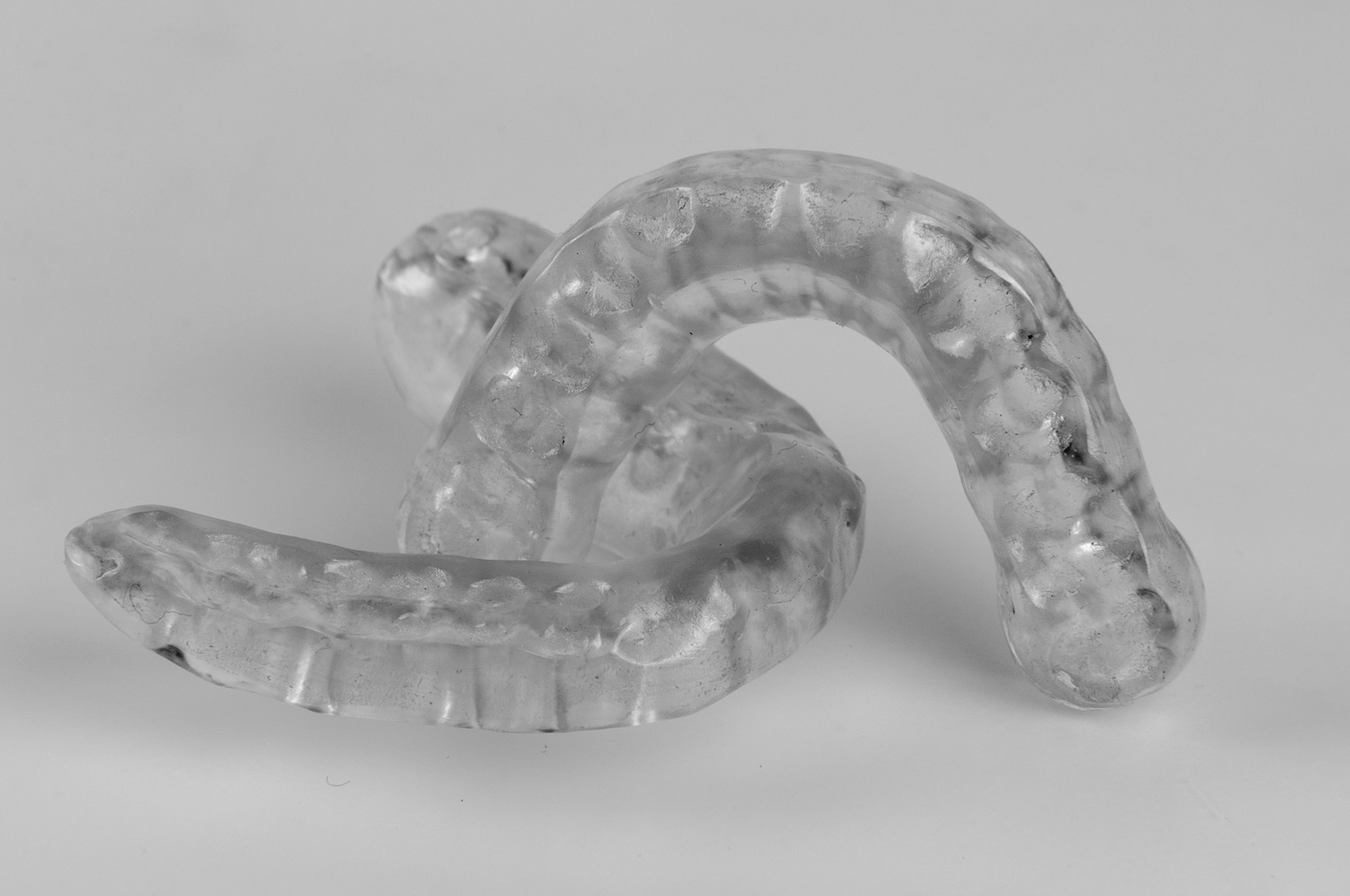Night Guards
Clenching your jaw and grinding your teeth can cause tooth and jaw deterioration. We can fabricate a night guard to act as a shock absorber to protect your teeth and jaw. You wear this custom-made appliance at night to restore harmony to your mouth.
Why do people grind or clench their teeth?
Stress
Anxiety
Use of some medications
Snore Guards
Snoring can affect your sleep as well as the sleep of those near you. We can fabricate an appliance to reposition your lower jaw to decrease the noise of snoring. Please note that these appliances may quiet snoring but are not intended to treat a sleep apnea condition. We refer our sleep apnea patients to a great team of specialists.







